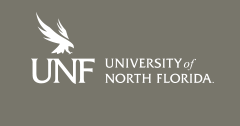Faculty Mentor
Andrew Buchwalter, PhD, Presidential Professor
Faculty Mentor Department
Department of Philosophy and Religious Studies
Associated Prize (or Other Information)
This paper was a co-winner of the Philosophy Program's 2019-2020 Paper Prize
Abstract
This paper examines Hegel's description of mutual recognition in his Phenomenology of Spirit. On this account, development of a self-consciousness occurs only alongside another, separate and distinct self-consciousness. We find our identity and genuine sense of selfhood through family ties, civil society, and the state. Apart from others, we cease to exist—self-consciousness cannot be found in isolation. With this said, many internal and external complications ensue from obtaining recognition, our greatest desire, from another self which also seeks recognition. Hegel’s Master-Slave dialectic is delineated along with the attainment of self-consciousness through social and political spheres. The emphasis he places on intersubjective relations of recognition for selfhood is compelling; however, his account is too cognitive and political and thus fails to adequately resolve the inequitable power dynamic at hand. Emotionality and friendship both transcend and dismantle the struggle for recognition and should therefore receive more attention in Hegel’s account of attaining recognition.
Recommended Citation
Nguyen, Madison A.
(2020)
"Mutual Recognition: The Struggle for Power and Domination,"
PANDION: The Osprey Journal of Research and Ideas: Vol. 1:
No.
2, Article 3.
Available at:
https://digitalcommons.unf.edu/pandion_unf/vol1/iss2/3


